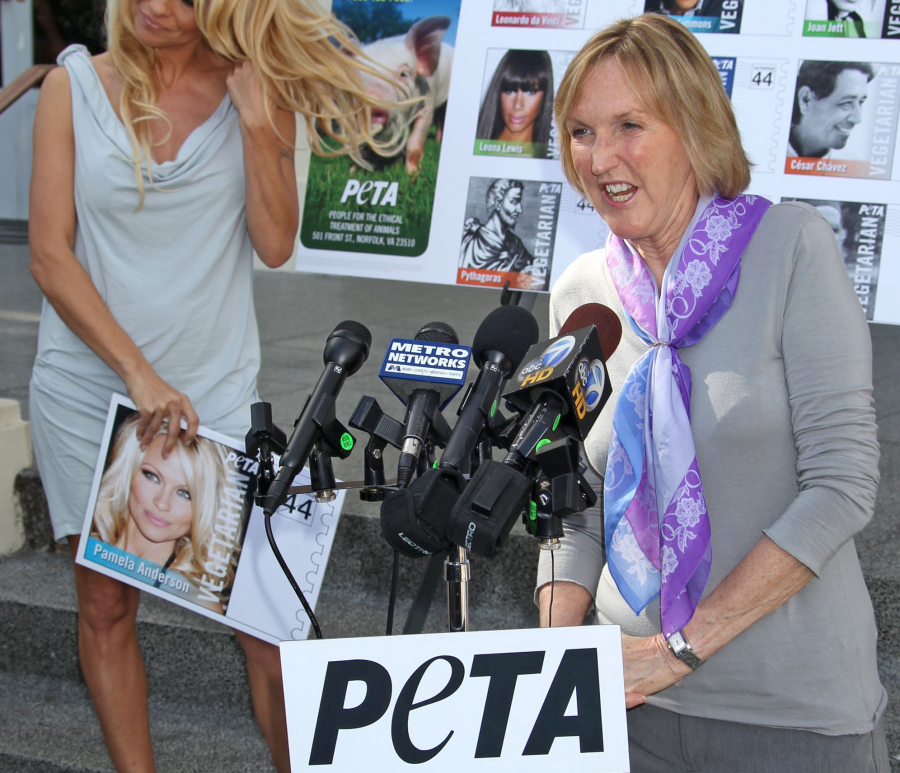
It is not easy to read stories or watch videos of animal cruelty. As someone who likes turtles and other animals, I want to protest against circuses and other companies that have little or no morals for animals. People for the Ethical Treatment of Animals (PETA), one of the largest animal-rights organizations in the United States, has saved the lives of many animals from cruel practices, and I want PETA to continue to do so.
However, besides the provocative protests, parts of PETA’s message are too excessive for normal people to follow. According to its “Why Animal Rights?” page, PETA blacklists the American Cancer Society (ACS) and other “life-taking” charities because they “fund cruel animal experiments” and “drain money away from relevant and effective projects that could help save lives.” Although the methods of experimentation may not be ideal, PETA should not attack ACS and other humanitarian organizations, which certainly do not have malevolent intentions, for funding cancer research. Protesting against an organization that can ultimately help humans live longer is excessive and quite inhumane.
Even if someone wants to avoid a product produced with the help of animal experimentation, it would be hard to do so without being hypocritical. PETA protestors can find vegan alternatives to food and shampoos, but they would be lucky to find vegan alternatives to drugs and vaccines, which are usually tested on thousands of mice and monkeys. Without these animals’ sacrifices, humans would not be able to fight against smallpox and other debilitating diseases. If people want to criticize research-funding organizations for sacrificing animals for the common good, protestors should not use or receive any medicines or vaccines at the risk of not staying true to their beliefs.
In response to unhealthy farming practices that mistreat animals, PETA advocates veganism, which is healthier than many diets but is not practical for all humans. Humans are omnivores and belong in the upper levels of the food web. Therefore, most humans cannot resist the desire to eat some form of meat, and only a small percentage of humans is determined enough to avoid any non-vegan product. Also, almost of our ancestors had to consume meat and dairy to survive, and wild animals constantly fight and kill to eat and live. Because animal-killing is necessary to a certain extent, it would be unfair to label meat eating as unethical and to claim that being vegan is the only option that is not cruel to animals.
The most conflicting part of PETA’s position is the issue of “euthanasia,” which is the practice of intentionally ending an animal’s life to relieve pain. In its website, PETA and other animal right supporters “believe that animals have an inherent worth,” but PETA’s well documented program of euthanasia seems to contradict the words of Ingrid Newkirk, the founder of PETA who said that every animal or human “values his or her life.” PETA can argue “that every creature with a will to live has a right to live free from usefulness to humans” and that death may be better than a couple more months of pain, but does PETA have the authority to determine the fate of an animal? PETA supporters rally for equality between animals and humans, so technically, if humans can make decisions for themselves, so should animals. Unfortunately, euthanasia also creates an inequality between animals that are unfairly killed and animals that are lucky to escape the treatment for their injury or sickness. By not considering the basic needs of all animals and instead doing what is most convenient, PETA has failed to follow its basic tenet.
PETA should continue to advocate for animal rights and, at the same time, deliver a more rational course of action. Otherwise, controversy will continue to mask its positive efforts, and PETA will lose credibility.
Written by ANDREW HONG
Staff Writer
Categories:
The credibility of PETA
April 11, 2014
1
0
Donate to Sword & Shield
$180
$1000
Contributed
Our Goal
Your donation will support the student journalists of University High School. Your contribution will allow us to purchase equipment and cover our annual website hosting costs.









